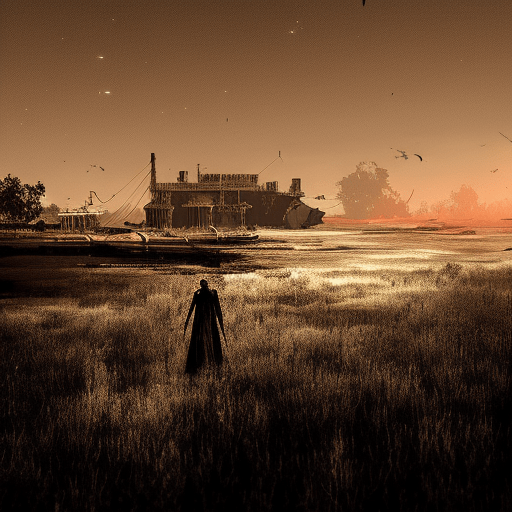One-line Summary:
Night is a powerful memoir by Elie Wiesel that recounts his experiences as a young Jewish boy during the Holocaust, highlighting the horrors of the concentration camps and the loss of faith in humanity.
The Journey to Hell:
Night begins with Elie Wiesel’s peaceful life in the town of Sighet, Transylvania, where he studies Jewish mysticism and enjoys a close relationship with his family. However, their lives are abruptly shattered when the Nazis invade their town, forcing them into ghettos and ultimately onto cattle cars bound for Auschwitz. The journey to the concentration camp is filled with unimaginable suffering, as they endure cramped conditions, starvation, and the loss of loved ones. Upon arrival, they are subjected to the dehumanizing process of selection, where the sick and weak are sent to their deaths in the gas chambers.
The Horrors of Auschwitz:
Once inside Auschwitz, Elie and his father are separated from his mother and sisters. They are subjected to brutal treatment, forced labor, and constant fear of death. Elie witnesses the atrocities committed by the SS officers, including the merciless beatings and executions. The prisoners are stripped of their humanity, reduced to mere numbers tattooed on their arms. Elie’s faith in God is severely tested as he questions how a benevolent deity could allow such evil to exist.
The Struggle to Survive:
As the war progresses, Elie and his father are transferred to several other concentration camps, including Buna and Buchenwald. They endure harsh conditions, extreme cold, and constant hunger. Elie witnesses the degradation of humanity as prisoners turn against each other for scraps of food. Despite the constant threat of death, Elie clings to the hope of survival, driven by his desire to reunite with his family and the will to bear witness to the atrocities committed during the Holocaust.
Throughout their time in the camps, Elie’s father becomes increasingly weak and ill. Elie must navigate the moral dilemmas of caring for his father while also prioritizing his own survival. In the end, Elie’s father succumbs to exhaustion and illness, leaving Elie devastated and alone. The liberation of the camps by the Allied forces brings both relief and a sense of emptiness for Elie, who must now face the daunting task of rebuilding his life in a world forever changed by the Holocaust.
Key Takeaways:
- The Holocaust was a horrific event that resulted in the systematic genocide of six million Jews.
- The memoir Night serves as a powerful testament to the atrocities committed during the Holocaust and the resilience of the human spirit.
- The loss of faith in humanity and the struggle to maintain one’s own humanity in the face of unimaginable cruelty are central themes in Night.
- The memoir emphasizes the importance of remembrance and bearing witness to the horrors of the past to prevent such atrocities from happening again.
“Never shall I forget that night, the first night in camp, which has turned my life into one long night, seven times cursed and seven times sealed. Never shall I forget that smoke. Never shall I forget the little faces of the children, whose bodies I saw turned into wreaths of smoke beneath a silent blue sky.”
In conclusion, Night is a haunting memoir that provides a firsthand account of the Holocaust and the profound impact it had on the lives of its victims. Elie Wiesel’s powerful narrative serves as a reminder of the importance of remembering the past and working towards a future free from hatred and prejudice.












